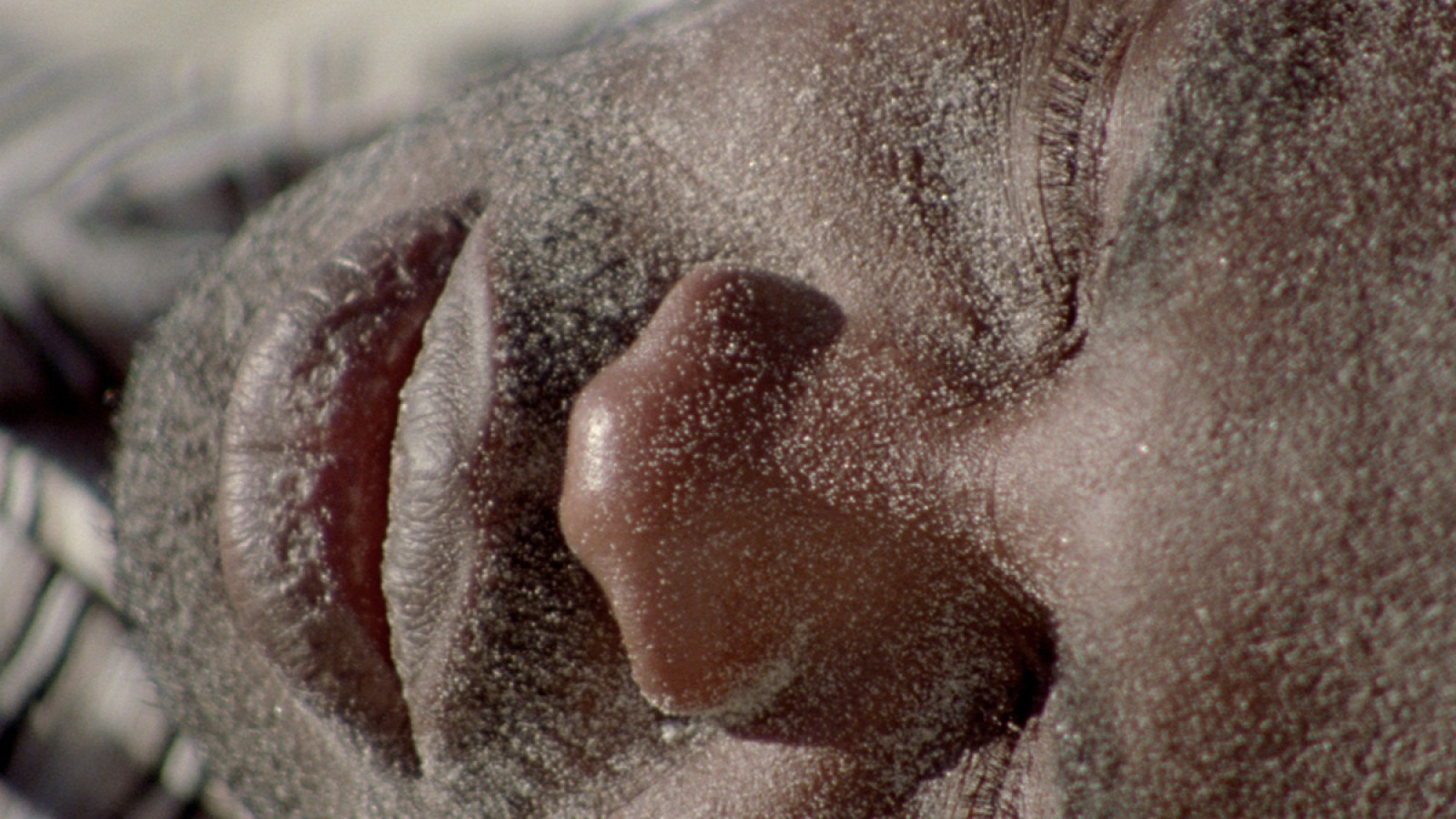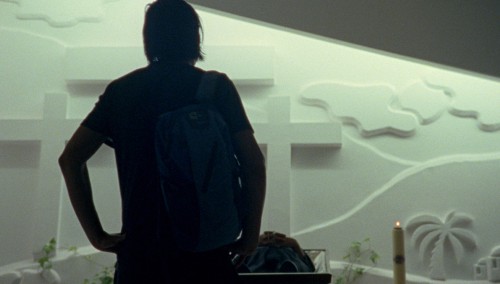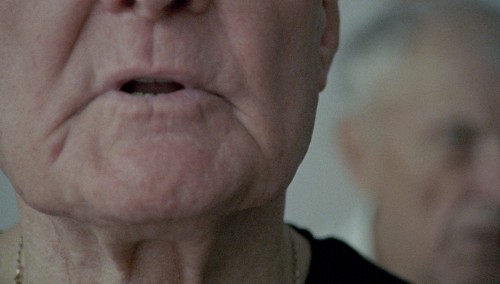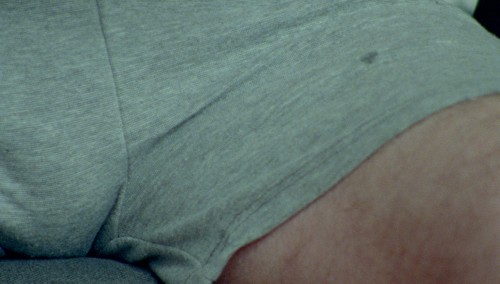Słońce, to słońce mnie oślepiło
The Sun, the Sun Blinded Me
Wilhelm und Anka Sasnal adaptieren Albert Camus’ berühmten Roman „Der Fremde“ und übersetzen ihn in die Gegenwart: Von seiner Umwelt und den Mitmenschen entfremdet lebt der Antiheld Rafał vor sich hin, seine einzige Leidenschaft gehört dem Laufen. Auf einer Urlaubsreise tötet er beinahe schon zufällig einen schwarzen Migranten an einem Ostseestrand. Dazwischen vermischen sich Einbildung und Wirklichkeit, ein anderes Leben voll Empathie scheint möglich, wird jedoch ängstlich verworfen. Rafał wird inhaftiert, sein Prozess ist Parallelführung zwischen den wirren Anschuldigungen eines erzkonservativen, katholischen Kleinbürgertums und dem puren Rassismus einer aufstrebenden Klasse. Am Ende sind die Rollen getauscht. Geschrieben am Vorabend des Nazi-Einmarsches in Frankreich und unter dem Eindruck eines zerfallenden Kolonialismus in Algerien ist es in der Adaption des Buches ebenfalls die gewohnte Weltordnung, die absurd scheint und bröckelt. Anstatt jedoch Camus’ höchst moralisches Plädoyer am Ende des Romans aufzugreifen, setzen die Sasnals auf die Vermischung von Fiktion und Realität, die eine „andere“ Gesellschaft ermöglicht. (Claudia Slanar)
Highly effective both as an adaptation of Camus’ “The Stranger” and as a social critique, the film is set in Poland and replaces the Algerian War with the ongoing refugee crisis to express a vehement indictment of contemporary Polish society and of the broader discourse around the European response to the crisis. The alienation of the protagonist, Rafał Mularz, is depicted as a product of the stifling conservatism and revolting racism that surrounds him and the encounter with the Arab on the beach, here a refugee on the run from the authorities, triggers a confrontation with his own morality representative of the Europe-wide dilemma between altruism and egocentrism. (Giovanni Marchini Camia, Filmmaker Magazine)
Director's Biography
ANKA SASNAL, born in 1973 in Tarnów in Poland, studied Polish literature and gender studies. As a screenwriter, editor, and filmmaker, she lives in Kraków together with Wilhelm Sasnal, who was also born in Tarnów in 1972 and studied architecture and painting.
WILHELM SASNAL attracted international attention as a visual artist with a series of solo and group exhibitions in renowned international galleries and art institutions with paintings, comic books, drawings, photographs, and videos. From the first joint film project onwards, significant characteristics of their artistic collaboration are already visible: the intensive focus on language, texts, and literary models, which they transform into an image language that suits them. An explicit political stance can be noted in their films – thematically Anka and Wilhelm Sasnal circle around the current state of Polish society, rising xenophobia, the relationship of Polish society to the Catholic church, and especially the recent Polish past during the Second World War. A dystopian worldview, although not so much a pessimistic one – as they say themselves – may certainly be attributed to their work, along with an undisguised interest in the “dark” side of human beings. Anka and Wilhelm Sasnal are no strangers to the festival audience in Linz, as they have already been represented in the festival program twice in the past. In 2012, they won the main prize with It Looks Pretty from a Distance, which premiered in Rotterdam, and then returned with Parasite in 2014.
// Films at CROSSING EUROPE Film Festival 2017
// Co-directed films: Słońce, to słońce mnie oślepiło (The Sun, the Sun Blinded Me, 2016), Huba (Parasite, 2014; CE’14), Aleksander (2013, doc), Z daleka widok jest piękny (It Looks Pretty from a Distance, 2011; CE’12), Świniopas (Swineherd, 2008)
// Films by Wilhelm Sasnal: Afternoon of a Faun (2015, short), Columbus (2014, short), Inhuman Hunger (2014, short), Kacper (2010, short), Europa (2007, short), Brazil (2005, short), Marfa (2005, short)
WILHELM SASNAL attracted international attention as a visual artist with a series of solo and group exhibitions in renowned international galleries and art institutions with paintings, comic books, drawings, photographs, and videos. From the first joint film project onwards, significant characteristics of their artistic collaboration are already visible: the intensive focus on language, texts, and literary models, which they transform into an image language that suits them. An explicit political stance can be noted in their films – thematically Anka and Wilhelm Sasnal circle around the current state of Polish society, rising xenophobia, the relationship of Polish society to the Catholic church, and especially the recent Polish past during the Second World War. A dystopian worldview, although not so much a pessimistic one – as they say themselves – may certainly be attributed to their work, along with an undisguised interest in the “dark” side of human beings. Anka and Wilhelm Sasnal are no strangers to the festival audience in Linz, as they have already been represented in the festival program twice in the past. In 2012, they won the main prize with It Looks Pretty from a Distance, which premiered in Rotterdam, and then returned with Parasite in 2014.
// Films at CROSSING EUROPE Film Festival 2017
// Co-directed films: Słońce, to słońce mnie oślepiło (The Sun, the Sun Blinded Me, 2016), Huba (Parasite, 2014; CE’14), Aleksander (2013, doc), Z daleka widok jest piękny (It Looks Pretty from a Distance, 2011; CE’12), Świniopas (Swineherd, 2008)
// Films by Wilhelm Sasnal: Afternoon of a Faun (2015, short), Columbus (2014, short), Inhuman Hunger (2014, short), Kacper (2010, short), Europa (2007, short), Brazil (2005, short), Marfa (2005, short)
Tribute · Eröffnungsfilme | Opening Films 2017
Anka Sasnal, Wilhelm Sasnal
Polen / Schweiz 2016
color
74 Minuten
OmeU
Drehbuch Anka Sasnal, Wilhelm Sasnal
Kamera Wilhelm Sasnal
Schnitt Beata Walentowska
Ton/Sounddesign Igor Kłaczyński
Mit Rafał Maćkowiak, Edet Bassey, Małgorzata Zawadzka
Produzent*innen Anka Sasnal, Wilhelm Sasnal (PL), Hauser & Wirth (CH), Foksal Gallery Foundation (PL)
Produktion
Hauser & Wirth Limmatstrasse 270 8005 Zurich, Switzerland zurich@hauserwirth.com www.hauserwirth.com Foksal Gallery Foundation Górskiego 1A 00-033 Warsaw, Poland mail@fgf.com.pl www.fgf.com.pl
Österreichpremiere
Weltpremiere/World PremiereLocarno International Film Festival 2016
Premierenstatus/Premiere Status
Austrian Premiere




